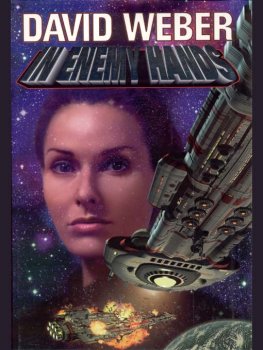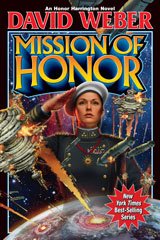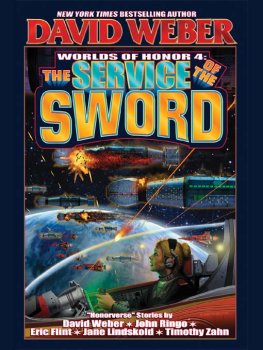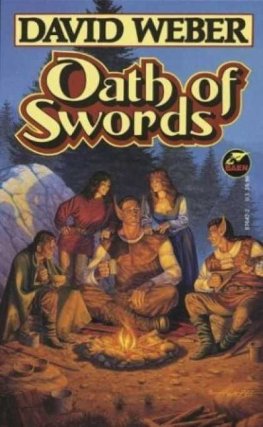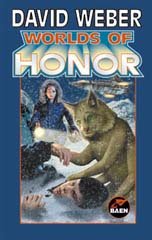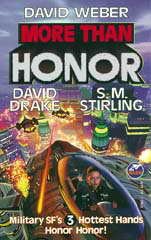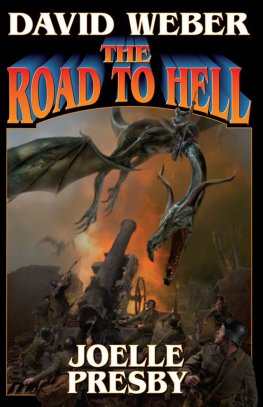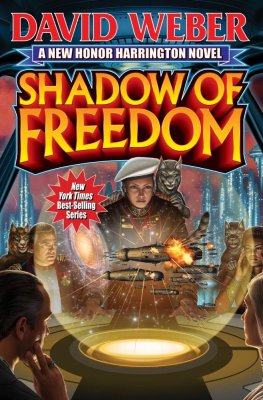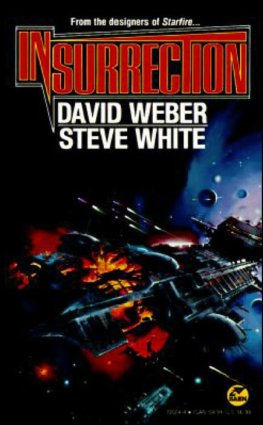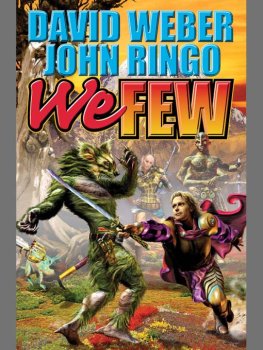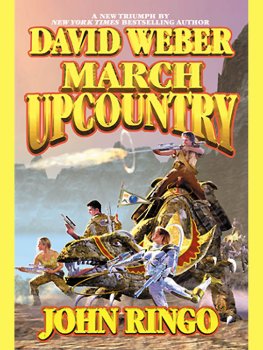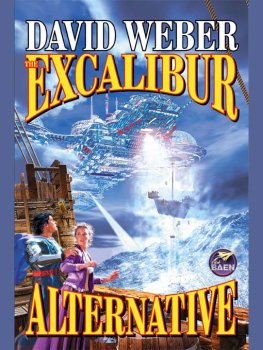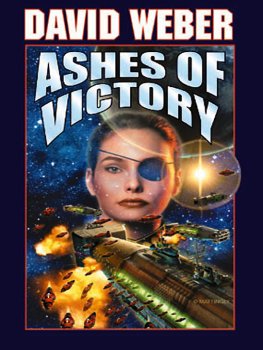David Weber - In Enemy Hands
Here you can read online David Weber - In Enemy Hands full text of the book (entire story) in english for free. Download pdf and epub, get meaning, cover and reviews about this ebook. publisher: Baen Publishing Enterprises, genre: Science fiction. Description of the work, (preface) as well as reviews are available. Best literature library LitArk.com created for fans of good reading and offers a wide selection of genres:
Romance novel
Science fiction
Adventure
Detective
Science
History
Home and family
Prose
Art
Politics
Computer
Non-fiction
Religion
Business
Children
Humor
Choose a favorite category and find really read worthwhile books. Enjoy immersion in the world of imagination, feel the emotions of the characters or learn something new for yourself, make an fascinating discovery.
- Book:In Enemy Hands
- Author:
- Publisher:Baen Publishing Enterprises
- Genre:
- ISBN:0-671-57770-0
- Rating:5 / 5
- Favourites:Add to favourites
- Your mark:
- 100
- 1
- 2
- 3
- 4
- 5
In Enemy Hands: summary, description and annotation
We offer to read an annotation, description, summary or preface (depends on what the author of the book "In Enemy Hands" wrote himself). If you haven't found the necessary information about the book — write in the comments, we will try to find it.
In Enemy Hands — read online for free the complete book (whole text) full work
Below is the text of the book, divided by pages. System saving the place of the last page read, allows you to conveniently read the book "In Enemy Hands" online for free, without having to search again every time where you left off. Put a bookmark, and you can go to the page where you finished reading at any time.
Font size:
Interval:
Bookmark:
David Weber
In Enemy Hands
Prologue
"I think it's a mistakea big one." Cordelia Ransom's blue eyes glittered, but the passionate voice which had raised and swayed so many chanting crowds was cold, almost flat. Which, Rob Pierre reflected, proved her emotions were truly engaged on this issue.
"I obviously don't, or I wouldn't have suggested it," he told her, meeting her eyes levelly while he sought to put enough iron into his deliberately calm reply to override her chill intensity. He succeeded in that, for the most part, but it wasn't as easy as it should have been, and he knew it. He just hoped she didn't.
Officially, Pierre was the most powerful man in the People's Republic of Haven. As the creator and head of the Committee of Public Safety, his word was law and his power over the PRH's citizens absolute. Yet even he faced limitsincluding the one which had finally decided him his proposal was necessaryand the fact that most of them were invisible to those beyond the ranks of the Committee's membership made them no less real.
His was a revolutionary government which had imposed itself upon the Republic by force. Everyone knew it had extended its grasp far beyond the caretaker role the People's Quorum had envisioned when it voted to ratify his creation of the Committee and named him its chairman. The Quorum had thought it was setting up little more than a caretaker panel to restore domestic stability as quickly as possible... what it had gotten was a revolution run by a multiheaded dictatorship which was quite prepared to use coercion, suppression, and outright terror tactics to maintain its grasp and promote its own agenda. That was the heart of his problem. By using force and ruthlessness to reach so far beyond what the Quorum had expected and authorized, he'd made his power real and undeniable, but he'd also deprived his authority (which, he conceded, was notquitethe same thing) of that subtle and elusive quality called "legitimacy."
A rule imposed by violence or the threat of violence could be overturned the same way, and as a creature of force, his Committee had no recourse to the rule of law or custom to support it. It was odd how little thought people gave to governments which could claim those supports, he thought moodily. Or of how the destruction of a society's underlying social contract, even if the contract in question had been a bad one, smashed the stability of that society until a new contract, acknowledged by its members as legitimate, replaced it. Pierre himself had certainly underestimated the consequences when he set out upon the revolutionary's path. He'd known there had to be a period of unrest and uncertainty, but somehow he'd assumed that once he and his colleagues got past those initial rough spots, the simple passage of time would be sufficient to legitimize their authority in the eyes of those they ruled. That was how it ought to have worked, he told himself yet again. However they'd gotten to where they were, they had at least as strong a claim to their places as the Legislaturalists they'd destroyed to get here had ever had. And unlike the Legislaturalists, Pierre had become a revolutionary in the first place because he genuinely believed in reform. Yet by the very act of seizing power, he had created a situation in which the ability to take that power was all that truly mattered to those who might compete for authority, for his own actions had eliminated not only all previously existing avenues to it but also any "legitimate" constraints upon the use of force.
All of which meant that the seemingly all-powerful Committee of Public Safety was, in fact, a far more fragile edifice than it appeared. Its members were careful to display their confidence to the Dolists and Proles they'd mobilized, but Pierre and his colleagues knew that any number of unsuspected plotters could be working to overthrow them at any moment. Why not? Hadn't they overthrown the Republic's previous lords and masters? Hadn't the Legislaturalists' long monopolization of the power of the state produced crackpots and fanatics in profusion? And hadn't the Committee itself crushed enough "enemies of the People" to guarantee its members potentialand passionateenemies galore?
Of course they had, and some of them had demonstrated a dangerous willingness to act on that enmity. Fortunately, most of the outright lunatics, like the Zeroists, who had supported Charles Froidan's demands that all money be abolished, had been too incompetent to plan a bottle party, much less stage a coup. Others, like the Parnassians, whose platform had included the execution of all bureaucrats on the grounds that their choice of employment was prima facie evidence of treason against the People, had been reasonably competent conspirators but guilty of bad timing. By moving too soon, they'd made too many enemies among their competing extremists, and Pierre and State Security had managed to play one faction off against the other to destroy them. (Actually, that had been one of Pierre's harder decisions, for he'd discovered that, having dealt with the enormous, glacially paced bureaucracy bequeathed to him by the Legislaturalists, he felt a certain personal sympathy for the Parnassians' views. In the end, however, he had decidednot without regretthat the Committee required the bureaucrats to keep the Republic running.)
Some of their enemies, however, like LaBoeuf's Levelers, might have been lunatics but had certainly been capable of excellent timing and good security. Their idea of a proper society made anarchy look positively regimented by comparison, but they'd been organized enough to get several million people killed in less than a day of heavy fighting. It was amazing what a few kinetic bombardment strikes and pee-wee nukes could do to a city of thirty-six million souls, he thought. Actually, they'd been lucky to get off as lightly as they had... and at least none of the Levelers' known leadership had survived the bloodbath. Of course, it was almost certain that at least some of their inner cadre actually held seats on the Committee itself. They had to for the Levelers to have come so close to success, and they remained unidentified so far... whoever they were.
Under the circumstances, Pierre supposed he shouldn't be surprised to find that his initial ardor for reform was being ground away by his constantly growing, persistently unshakable sense of insecurity. Bad enough when that feeling of vulnerability had been genuine paranoia, with no basis in fact. Now that he had proof he not only had enemies but that they could be deadly dangerous, he was desperate to reach out for anything which might lend the Committee even a tiny bit more stability, strengthen his hand in any way he could. That, coupled with the equally desperate need to win the war to which the previous regime had committed the Republic, was the reason for his present proposal, and he glanced at Oscar Saint-Just for support.
To an outside observer, Saint-Just must clearly have been the second most powerful member of the triumvirate which ruled the Committee and hence the PRH. In fact, some might consider him even more powerfultactically, at leastthan Pierre himself, for Saint-Just's was the iron fist which commanded the Office of State Security. But once again, appearances could be deceiving. As head of the SS, Saint-Just was the Committee's executioner, with a power base which was far more readily apparent than Ransom's. Yet the very reasons Pierre was willing to trust him with that authority underscored the fact that Saint-Just could never be the threat Ransom might someday become. Unlike Cordelia, Oscar knew his reputation as the Republic's chief warden would preclude his maintaining himself indefinitely in power even if he somehow managed to seize it. He was the focal point of all the fear, hatred, and resentment the Committee of Public Safety had engendered... on top of which, he genuinely had no desire to supplant his leader. Pierre had given him sufficient opportunities to prove otherwise, but Saint-Just had taken none of them, for he knew his own limitations.
Font size:
Interval:
Bookmark:
Similar books «In Enemy Hands»
Look at similar books to In Enemy Hands. We have selected literature similar in name and meaning in the hope of providing readers with more options to find new, interesting, not yet read works.
Discussion, reviews of the book In Enemy Hands and just readers' own opinions. Leave your comments, write what you think about the work, its meaning or the main characters. Specify what exactly you liked and what you didn't like, and why you think so.

